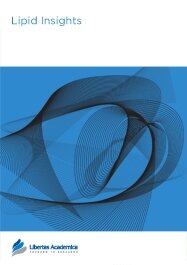


Instituto del Frío (CSIC), José Antonio Novais 10, 28040 Madrid.
Abstract
This paper is focused on the present state-of-the art of modifications and effects of dietary oxidized lipids during their transit along the gastrointestinal tract. A survey of the literature reporting changes and effects of oxidized lipids before absorption, first in the stomach and then during enzymatic lipolysis in the small intestine, are addressed. Also, the fate of non-absorbed compounds and their potential implications at the colorectal level are discussed. Among the results found, it is shown that acidic gastric conditions and the influence of other dietary components may lead to either further oxidation or antioxidative effects in the stomach. Also, changes in oxidized functions, especially of hydroperoxy and epoxy groups, seem likely to occur. Enzymatic hydrolysis by pancreatic lipase is not effective for triacylglycerol polymers, and hence they can be found as non-absorbed oxidized lipids in the large intestine. Interactions of oxidized lipids with cholesterol absorption in the small intestine and with microflora metabolism have been also observed.
PDF (404.18 KB PDF FORMAT)
RIS citation (ENDNOTE, REFERENCE MANAGER, PROCITE, REFWORKS)
BibTex citation (BIBDESK, LATEX)


I had a great experience publishing our paper in Clinical Medicine Insights: Oncology. The review was prompt and fair and once it was accepted with the revisions, the editorial office was very clear and helpful with updates on the progress at each step of the publication process. I had prompt email responses to my questions. I will definitely try to publish more papers in this journal in the future. Keep the good work. ...
Facebook Google+ Twitter
Pinterest Tumblr YouTube